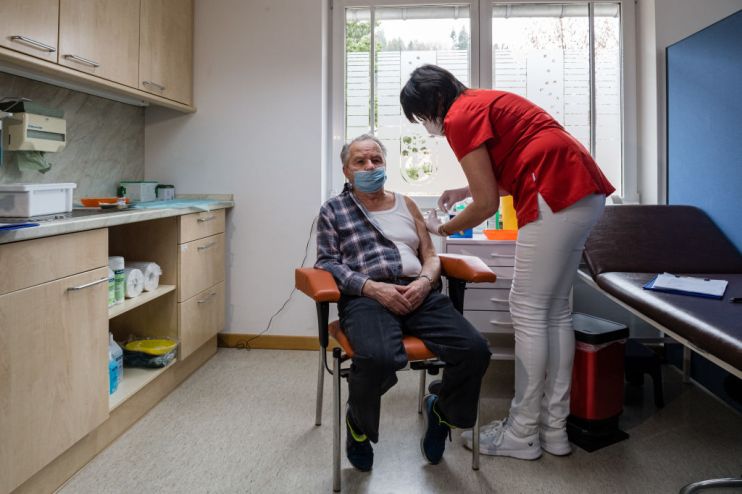WHO says countries should continue to use Astrazeneca Covid-19 vaccine as ‘benefits outweigh risks’

The World Health Organization (WHO) has backed the use of the Astrazeneca Covid-19 vaccine, saying the “benefits outweighed the risks” after several countries temporarily banned the jab over safety concerns.
WHO’s vaccine safety panel said: “At this time, WHO considers that the benefits of the Astrazeneca vaccine outweigh its risks and recommends that vaccinations continue.”
More than a dozen European countries have suspended use of the vaccine this week amid concerns that it could increase the risk of blood clots among patients.
Sweden yesterday joined a growing list of countries including Italy, Germany, France and Norway to issue a temporary ban on the jab. No such cases have been reported in Sweden but neighbouring Norway and Denmark have each reported one blood clot-related death.
The European Medicines Agency (EMA) is currently investigating the reports and will announce its findings in a press conference tomorrow. It is widely expected to recommend the continued use of the jab.
Italy and France this morning said they would U-turn on their temporary suspensions of the Astrazeneca vaccine if it receives the green light from the EMA.
WHO said today that its Global Advisory Committee on Vaccine Safety “is carefully assessing the latest available safety data for the Astrazeneca vaccine,” and will publish its findings once the review is completed.
The global health organisation listed Astrazeneca and Oxford University’s vaccine for emergency use last month, widening access to the relatively inexpensive shot in the developing world.
In a major snub to European countries that had applied age limits to the vaccine, WHO said there was enough evidence to recommend vaccines to “all people 18 years and above without an upper age limit”.
EU shortages
The Cambridge-based firm’s Covid vaccine has been been met with a wave of scepticism since its rollout across the continent earlier this year, despite vaccine shortages across the bloc.
The European Commission has since urged governments to stop sitting on vaccine stockpiles as infection rates rise. Countries such as Germany, France and The Netherlands have distributed around half of their total supplies of the Astrazeneca vaccine, despite calls to speed up the vaccine rollout.
Italy has used up all of the Pfizer doses delivered to the country as it scrambles to contain a recent spike in infections, but has administered just two-thirds of its Astrazeneca supplies.
Astrazeneca has insisted it is being made a scapegoat for supply shortages, after it announced last week that manufacturing issues meant it would not be able to deliver its agreed number of doses to the bloc.
Nicola Magrini, head of Italy’s medicines agency, admitted this morning that the decision to suspend vaccinations was “a political one” that Rome had reached only “because several European countries, including Germany and France, preferred to interrupt”.
UK leaders have reiterated their support for the jab, which has been used to immunise more than 11m people across Britain so far.
“There is no evidence that vaccines caused these clots,” health secretary Matt Hancock wrote in The Sun this morning, stressing that the jab had the backing of the EMA, the World Health Organization and Britain’s medicine’s regulator.
“The rate of reported cases (of clots) among the people vaccinated is lower than what would be expected to happen naturally in the general population,” he added.
Business secretary Kwasi Kwartend echoed Hancock’s comments, telling BBC Radio 4’s Today programme that the jab was “safe” and “extremely effective”.
“We’ve got an extremely effective rollout programme,” he said. “I think by the end of the week 50 per cent of the British adult population will have been vaccinated — and if people do get the call, I think they should take the jab.”